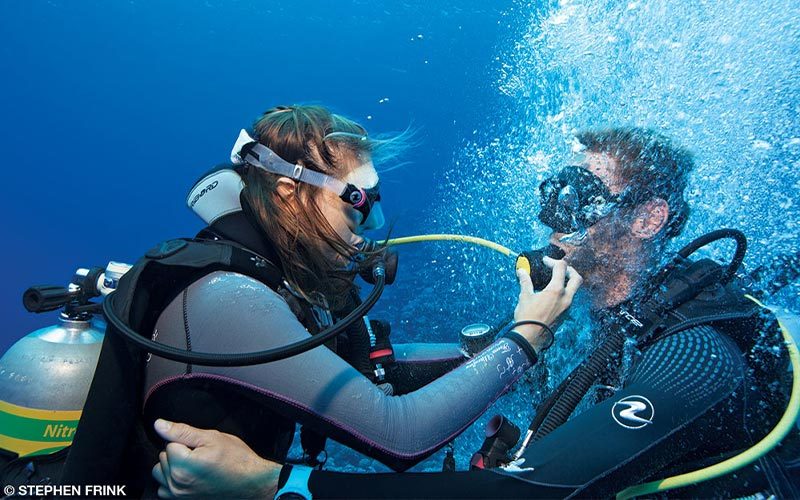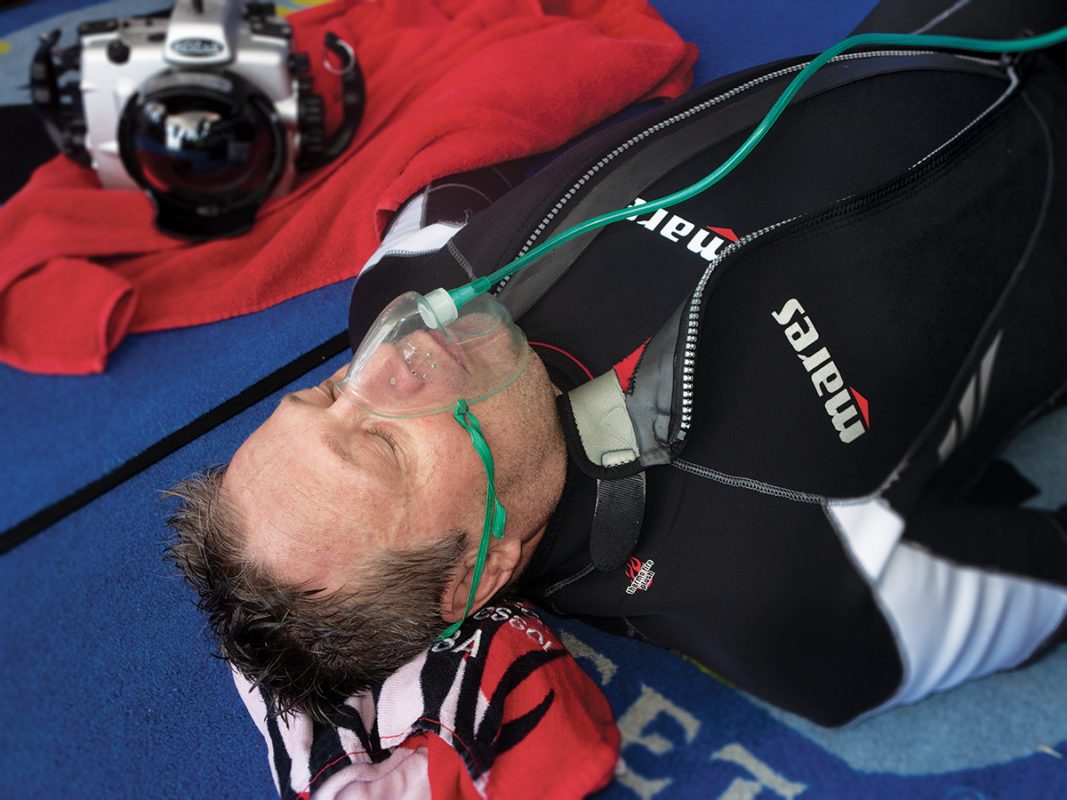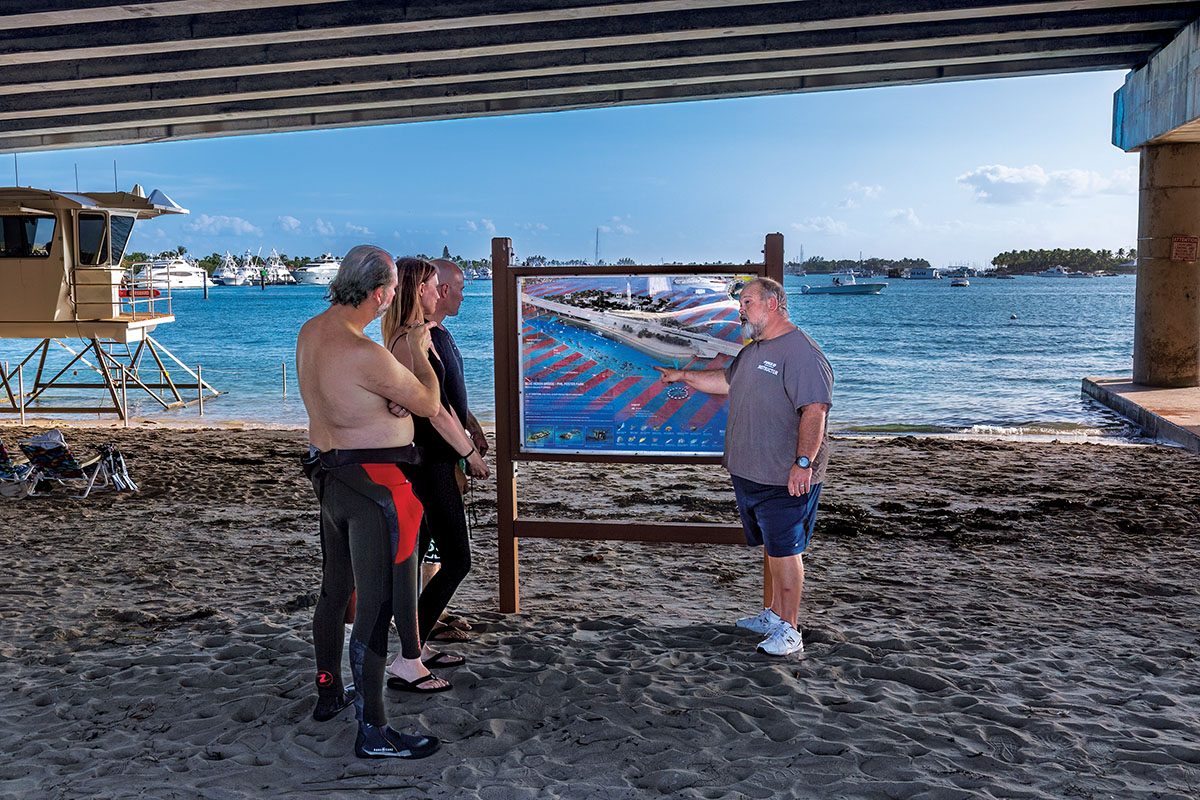Escape from the Bubble Cloud
When his regulator hose burst during a dive, a diver not only lost his primary air source, he also was engulfed by a cloud of bubbles that made it nearly impossible to see or hear.

When his regulator hose burst during a dive, a diver not only lost his primary air source, he also was engulfed by a cloud of bubbles that made it nearly impossible to see or hear.

IT WAS A BEAUTIFUL, WARM SATURDAY IN THE PACIFIC NORTHWEST. We were conducting two checkout dives for an advanced open-water course at a popular dive site in Puget Sound. I […]

It was a sunny day at South Florida’s Blue Heron Bridge. Two years had passed since I last dived this location, and I was anticipating a simple excursion to look at the local fish. The dive plan was to make a shore entry and allow the current to take me west down the beach.

PROPER OUT-OF-AIR TRAINING and practice are important so a situation like this will not be the first time a diver is exposed to it.

“DON’T YOU DO IT. END IT CLEAN. Don’t make me come get you,” I’m muttering under my breath as I kick furiously along a lane line, doing my best to […]

MY DIVE BUDDY AND I planned to do a longer than usual dive one Saturday morning at Madison Blue Spring State Park in Lee, Florida. For several years and more […]

Diver Jim surfaced before the rest of his group and unintentionally drifted in the water — separating him from the boat. Read more about how to play an active role in your rescue.

Many divers are proud to be comfortable in the water and sometimes push their limits on air consumption, exceed their bottom time, or take one last shot of a big fish with a camera or spear before ascending. Some of them develop reputations in the dive community for being competent divers by looking cool and experienced while taking little risks. It may start small but snowball into making poor decisions for which the price you pay is not worth the reward.

When conditions took an abrupt and unexpected turn during an exotic warm-water dive, our dive leader decided to abort. In these situations, it’s important to stay calm.

Modern dive computers can give us a wealth of information, but what if yours fails? Equipment redundancy, or having a backup, can help you know your true circumstances and prevent an injury or dangerous situation.
